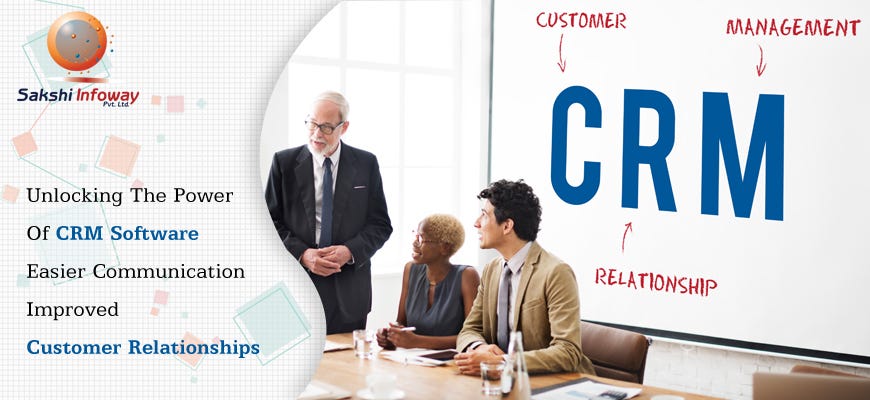Developing CRM software can cost anywhere from $10,000 to $500,000, depending on the complexity and customization required. CRM software development costs vary based on factors like features, integrations, platform, and development time.
With that said, let’s explore the factors that contribute to the cost of CRM software development. CRM (Customer Relationship Management) software is a crucial tool for businesses to manage their customer relationships, improve sales processes, and enhance customer satisfaction. While there are numerous CRM software options available in the market, some businesses may require custom CRM software tailored to their specific needs and workflows.
The cost of developing CRM software can vary significantly, depending on various factors. We will discuss the key factors that influence the development cost of CRM software and provide estimates to help you budget for your CRM software development project. So, continue reading to understand the different cost considerations and make an informed decision.
Factors Affecting CRM Software Development Cost
Several factors can affect the cost of developing CRM software. Firstly, the market demand for CRM software plays a crucial role in determining its development cost. With the increasing need for customer relationship management, more businesses are opting for CRM solutions, leading to a higher demand for software development.
The complexity of the required features and functionalities is another factor that influences the cost. Depending on the specific needs of the business, the software may require intricate automation and workflow capabilities, an intuitive user interface, and options for personalization and customization.
Integration with existing systems is also a consideration that can affect the cost. CRM software needs to seamlessly integrate with other systems and databases within an organization, which may require additional development and customization efforts.
Moreover, scalability and customizability requirements, responsive design for mobile platforms, and data management and security also contribute to the overall development cost. The software needs to be able to handle increasing data volume, provide secure data storage and accessibility, and comply with data privacy and compliance regulations. Implementing security measures against cyber threats is also crucial.
Considering these factors, the cost of CRM software development can vary significantly based on the specific requirements and complexity of each project.
Types Of CRM Software Development Costs
During the initial stages of CRM software development, thorough planning and requirements analysis are essential. This involves researching and conducting a feasibility study to determine the project’s viability. The next step is identifying business objectives and goals to align the software with the desired outcomes. Determining the required functionalities helps in understanding the scope of the development process.
Once the planning phase is complete, the development and programming stage begins. Software architecture design is crucial for creating a robust and scalable CRM system. Backend and frontend development are carried out using industry best practices. Integration with third-party tools and APIs enables seamless data exchange and enhances the software’s capabilities.
To ensure a high-quality CRM software, comprehensive testing and quality assurance procedures are implemented. This includes functional and performance testing to verify that the software meets the specified requirements. Bug fixing and issue resolution are conducted to eliminate any issues or discrepancies. User acceptance testing allows end-users to provide feedback and ensure the software meets their needs.
Once the CRM software is thoroughly tested, it is ready for deployment and implementation. Installation and configuration are carried out to set up the system in the desired environment. Data migration and system setup help in transferring existing data and configuring the software according to the organization’s requirements. Training and user onboarding ensure that users can effectively utilize the CRM software.
Cost Components In CRM Software Development
Developing a CRM software involves various cost components:
| Development team: | Highly skilled professionals are required, including project managers, software developers, UI/UX designers, quality assurance specialists. |
| Technology stack: | Choosing the right programming languages, frameworks, and database management systems impact both functionality and cost. |
| Hosting and infrastructure: | Costs for hosting the CRM software and managing the necessary infrastructure. |
| Third-party integrations: | Integrating various tools, such as CRM system integrations, payment gateways, and marketing automation tools. |
| Customization and scalability: | Tailoring the software to specific needs and considering potential upgrades and expansion of functionality in the future. |
| Ongoing maintenance and support: | Maintenance and support services to ensure the software operates smoothly and meets evolving requirements. |
When developing CRM software, it’s essential to consider these cost components to estimate the expenses involved accurately. Working with a reliable and experienced development team can help ensure a successful CRM software development project within your budget.

Credit: bloomerang.co
Estimating Crm Software Development Costs
Estimating CRM software development costs can be a crucial step in planning your project. Two common models for cost estimation include the fixed-price model and the time and materials model.
The fixed-price model is suitable for well-defined projects with a clear scope and requirements. It offers limited flexibility for changes, as the cost is predetermined and changes may require additional fees. On the other hand, the time and materials model offers a more flexible and adaptable approach, accommodating evolving requirements. The cost is determined by the hours worked, allowing for more adjustments along the way.
When deciding between outsourcing and in-house development, it is essential to weigh the benefits and potential drawbacks. Outsourcing CRM software development can provide access to specialized expertise, cost savings, and faster time to market. However, it may come with communication challenges and potential loss of control. Conversely, in-house development offers greater control and cohesion but requires dedicated resources and a longer development timeline.
Considerations for in-house development include resources and expertise available in your organization, as well as the long-term maintenance and support required. Whichever approach you choose, analyzing your project requirements and exploring available options will help you make an informed decision.
CRM Software Pricing Models
CRM software pricing can vary depending on the pricing model chosen by the vendor. One commonly used pricing model is license-based pricing, which involves paying for a license to use the software.
Per-user licensing is a common approach, where the cost is based on the number of users who will be accessing the CRM software. Different tiers may be offered, with varying features and capabilities, allowing businesses to choose a level that suits their needs.
Another pricing model is annual or monthly subscription fees, often associated with cloud-based subscriptions. With this model, businesses pay a recurring fee to access the software and its features.
Pay-as-you-go pricing is another option, where costs are based on actual usage. This model allows businesses to scale their usage and costs as needed.
Cloud-based solutions often have reduced upfront costs, making it more affordable for businesses to adopt CRM software. Open source and free CRM software options are also available, although these often come with limitations in terms of customization and integration.
In addition to the base pricing, it’s important to consider potential hidden costs, such as training, implementation, and ongoing support.
Overall, businesses have a range of pricing options to choose from when it comes to CRM software, allowing them to find a solution that fits their budget and specific requirements.
Additional Factors Affecting CRM Software Costs
CRM software development costs can vary depending on various factors and requirements. Customization and integration are two key factors that impact the overall cost. The extent of tailoring the CRM to fit specific business processes can add to the development cost. Integration with existing systems, such as accounting or marketing tools, may also require additional resources.
Data migration and setup is another important aspect. Extracting and transferring data from legacy systems to the new CRM requires time and effort. Mapping and transforming data to match the new CRM’s structure can also contribute to the overall expense.
Configuring the CRM for optimal performance is essential. This involves setting up workflows, automation, and reporting features according to the organization’s needs. User training and onboarding are crucial for successful CRM adoption, and technical support and maintenance are ongoing requirements.
Software updates and upgrades should also be considered as they ensure the CRM remains up-to-date with the latest features and security enhancements.
Overall, CRM development costs are influenced by customization, integration, data migration, setup, training, support, and maintenance needs.
Frequently Asked Questions For How Much Does It Cost To Develop CRM Software?
How Much Does It Cost To Develop CRM Software?
The cost of developing CRM software varies based on the complexity of features and customization required. On average, it can range from $30,000 to $500,000. Factors like integration, user interface, scalability, and maintenance also affect the overall cost.
What Factors Influence The Cost Of CRM Software Development?
Several factors influence the cost of CRM software development, including the complexity of features required, customization, integration with other systems, user interface design, data migration, and the level of scalability and security needed. These factors impact the development time and resources required, thus affecting the overall cost.
Is It More Cost-Effective To Develop CRM Software In-House Or Outsource?
Whether to develop CRM software in-house or outsource depends on your organization’s resources and expertise. In-house development allows for more control and customization but can be costlier in terms of hiring skilled developers and maintaining the infrastructure. Outsourcing to a reliable software development company can be a more cost-effective option, leveraging their expertise, experience, and resources.
What Are The Ongoing Costs Associated With CRM Software Development?
Aside from the initial development cost, ongoing costs for CRM software development include maintenance, updates, technical support, hosting, and integrations with other systems. It’s essential to consider these ongoing expenses when budgeting for your CRM software development project.
Conclusion
To sum it up, the cost of developing CRM software varies based on several factors such as the complexity of the system, features and functionalities needed, customization requirements, and the expertise of the development team. Prioritizing your specific business needs and budget constraints is crucial.
Collaborating with a reliable development partner can help you navigate the process and ensure cost-effectiveness. Remember, investing in a CRM solution tailored to your requirements can drive significant business growth and efficiency.




